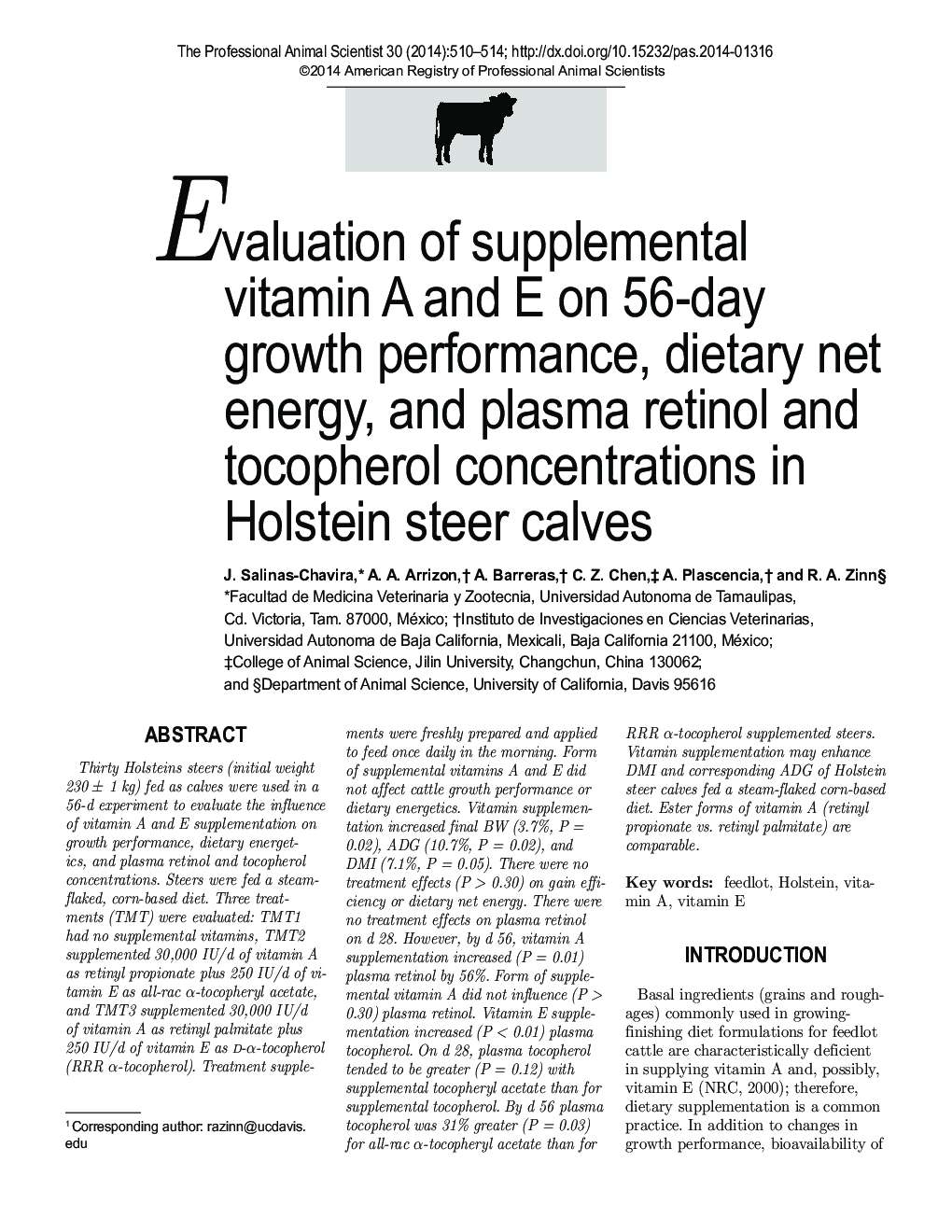| Article ID | Journal | Published Year | Pages | File Type |
|---|---|---|---|---|
| 2453833 | The Professional Animal Scientist | 2014 | 5 Pages |
Abstract
Thirty Holsteins steers (initial weight 230 ± 1 kg) fed as calves were used in a 56-d experiment to evaluate the influence of vitamin A and E supplementation on growth performance, dietary energetics, and plasma retinol and tocopherol concentrations. Steers were fed a steam-flaked, corn-based diet. Three treatments (TMT) were evaluated: TMT1 had no supplemental vitamins, TMT2 supplemented 30,000 IU/d of vitamin A as retinyl propionate plus 250 IU/d of vitamin E as all-rac α-tocopheryl acetate, and TMT3 supplemented 30,000 IU/d of vitamin A as retinyl palmitate plus 250 IU/d of vitamin E as d-α-tocopherol (RRR α-tocopherol). Treatment supplements were freshly prepared and applied to feed once daily in the morning. Form of supplemental vitamins A and E did not affect cattle growth performance or dietary energetics. Vitamin supplementation increased final BW (3.7%, P = 0.02), ADG (10.7%, P = 0.02), and DMI (7.1%, P = 0.05). There were no treatment effects (P > 0.30) on gain efficiency or dietary net energy. There were no treatment effects on plasma retinol on d 28. However, by d 56, vitamin A supplementation increased (P = 0.01) plasma retinol by 56%. Form of supplemental vitamin A did not influence (P > 0.30) plasma retinol. Vitamin E supplementation increased (P < 0.01) plasma tocopherol. On d 28, plasma tocopherol tended to be greater (P = 0.12) with supplemental tocopheryl acetate than for supplemental tocopherol. By d 56 plasma tocopherol was 31% greater (P = 0.03) for all-rac α-tocopheryl acetate than for RRR α-tocopherol supplemented steers. Vitamin supplementation may enhance DMI and corresponding ADG of Holstein steer calves fed a steam-flaked corn-based diet. Ester forms of vitamin A (retinyl propionate vs. retinyl palmitate) are comparable.
Related Topics
Life Sciences
Agricultural and Biological Sciences
Animal Science and Zoology
Authors
J. Salinas-Chavira, A.A. Arrizon, A. Barreras, C.Z. Chen, A. Plascencia, R.A. Zinn,
